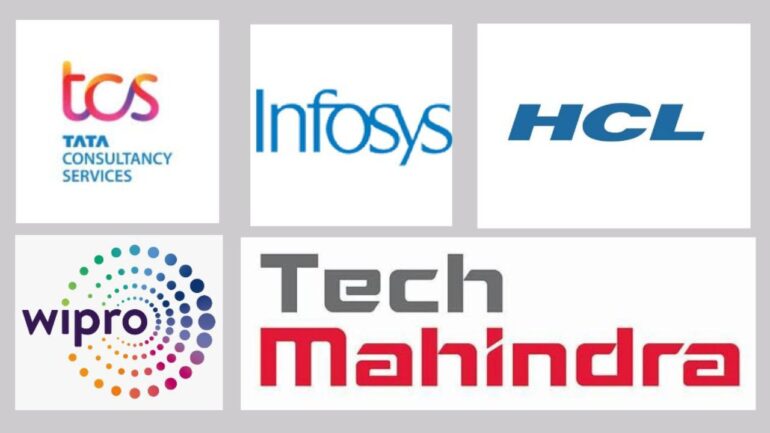TL;DR:
- Indian IT companies prioritize AI skill development for employees.
- Collaboration with Microsoft, Google, and others for AI upskilling.
- Tech Mahindra trains 8,000 employees in generative AI.
- TCS partners with Microsoft to train 25,000 employees on AI suite.
- TCS extends collaboration with Google for Generative AI training.
- Wipro equips 20,000 employees with AI skills through Google Cloud partnership.
- HCLTech trains 10,000 on Microsoft AI and 18,000 on Google AI.
- The growing interest in generative AI among clients in the IT sector.
- Management emphasizes client spending on AI integration despite overall cuts.
- Infosys reports engagement in 80 generative AI projects and bags $2 billion AI integration deal.
- Market impact to unfold as the fiscal year progresses, determining AI deal flow’s significance.
Main AI News:
In the rapidly evolving landscape of technology, Indian IT services companies are strategically focusing on enhancing their workforce’s expertise in artificial intelligence (AI), particularly in the realm of generative AI. This strategic move entails substantial investments in comprehensive training initiatives and fostering collaborations with industry giants such as Microsoft, Google, and others. These partnerships aim to equip the IT workforce with the proficiency to leverage the AI suites offered by these tech behemoths.
A notable contender in this transformative trend is Tech Mahindra, a frontrunner in the IT domain. Harshvendra Soin, the Chief People Officer and Head of Marketing at the company, recently revealed that Tech Mahindra accomplished a remarkable feat by training a staggering 8,000 employees in AI during the inaugural quarter of the fiscal year 2023-24. Soin highlighted the company’s steadfast commitment to cultivating a future-ready and resilient talent pool through continuous learning and development initiatives.
Following suit, industry leader TCS unveiled its strategic alliance with Microsoft, with the aim of imparting AI prowess to 25,000 employees. TCS’ engagement with Microsoft’s AI Council, along with its earned Partner Designation in Data and AI, bolsters its position as a pivotal player in this transformative shift. The company plans to empower its associates with the competencies to harness Azure Open AI, thus facilitating clients in swiftly embracing this innovative technology.
Notably, TCS has also bolstered its collaboration with Google, striving to train its workforce in harnessing the potential of Google Cloud’s Generative AI suite. Kevin Ichhpurani, Corporate Vice President at Google Cloud, acknowledged TCS’ profound expertise in business transformation and lauded their resolute commitment to driving generative AI adoption across industries.
Wipro, another prominent contender in the IT sector, is also steering its focus toward AI advancement by collaborating with Google Cloud. This initiative entails upskilling 20,000 employees in Google Cloud’s generative AI technologies. In parallel, Wipro’s dedication to AI is underscored by its substantial investment commitment of over $1 billion over the next three years.
HCLTech has also embarked on the AI upskilling journey, announcing the training of 10,000 employees on Microsoft’s AI suite and an additional 18,000 employees on Google’s AI suite. This concerted effort reflects the industry-wide recognition of the significance of AI integration in enhancing operational efficacy.
These forward-looking investments in employee skilling align with the burgeoning interest in generative AI among clients within the IT sector. K Krithivasan, CEO of TCS, emphasized the prominence of generative AI, stating that client interactions consistently gravitate towards this transformative technology.
Remarkably, even amidst a climate of reduced overall client spending, management commentary from Indian IT firms underscores a contrary sentiment – clients are allocating resources to integrate AI into their operations. HCLTech’s C Vijaykumar pointed to the rapid emergence of 140 AI projects, encompassing pilots and implementations, within a remarkably short timeframe.
This trend is not exclusive to TCS or HCLTech. Infosys’ CEO, Salil Parekh, echoed a similar trajectory, reporting engagement in 80 generative AI projects and clinching a substantial $2 billion deal from an undisclosed client for AI integration.
Conclusion:
The strategic focus of Indian IT giants on enhancing AI proficiency among their workforce demonstrates their proactive response to the escalating demand for AI-driven solutions. Collaborative efforts with industry leaders such as Microsoft and Google signal a cohesive drive toward creating a tech-savvy talent pool. The industry’s push for AI upskilling, coupled with clients’ evident interest in AI integration, is likely to reshape the market landscape, catalyzing innovative business transformations and positioning India’s IT sector at the forefront of technological evolution. The unfolding fiscal year holds the key to understanding the economic and operational implications of this burgeoning AI-focused strategy.

